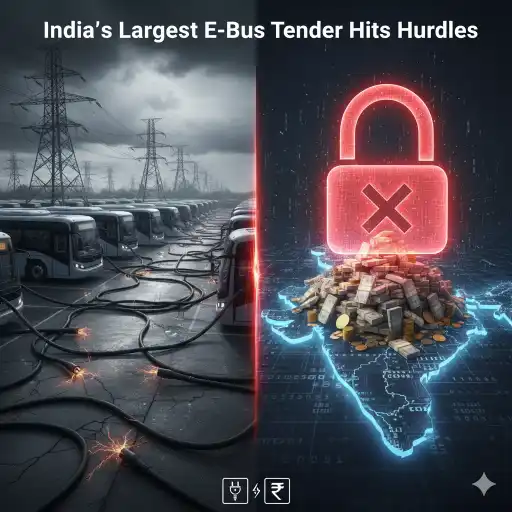India’s ambition to electrify public transport under the PM E-Drive Scheme has hit a major roadblock. The largest-ever tender for 10,000 electric buses, floated by Convergence Energy Services Limited (CESL), is facing mounting challenges, raising concerns over project timelines and viability.

According to reports, several state transport undertakings have not yet developed the necessary charging and maintenance infrastructure, making large-scale deployment difficult. CESL’s tender sought to aggregate demand across states for maximum efficiency, but uneven readiness has made execution complex.
Adding to the problem are high bidding costs, as manufacturers cite a sharp rise in input prices, especially for battery packs, powertrains, and imported components. The rupee’s volatility and global supply chain disruptions have further inflated costs, pushing bids well above government benchmarks.
The tender’s stringent technical requirements, including high-range specifications, battery warranties, and fast-charging compatibility, have also discouraged smaller players. While these conditions aim to ensure quality and long-term reliability, they’ve raised capital requirements for operators and vendors.
Experts warn that without policy flexibility, state-level infrastructure support, and viable financing models, India’s target of deploying thousands of e-buses by 2030 could slow down. Yet, industry leaders view this tender as a crucial milestone in India’s clean transport journey, one that, if executed well, could transform urban mobility and drastically cut emissions across major cities.
